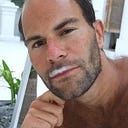“Disruption does not actually apply to organisations. The truth is it applies to individuals.” states Barry O’Reilly early on in Unlearn: Let Go of Past Success to Achieve Extraordinary Results. O’Reilly goes on to explain what great leaders and their companies have in common: a capability within themselves to innovate, adapt, and anticipate the future. Barry O’Reilly is a business advisor, entrepreneur, and author who operates at the intersection of business model innovation, product development, organisational design and culture transformation.
In order to adjust, O’Reilly argues in his latest book, we’ll need to unlearn, which starts with acknowledging that what you’re doing isn’t working for you. You need to let go of past viewpoints or behaviours, and take action to do what’s needed to progress. The Cycle of Unlearning contains four distinct steps to go through each time we need to adapt and innovate.
Barry O’Reilly, The Cycle of Unlearning
Step 1: Unlearn — Unlearning starts with the recognition that what we’re doing isn’t working. The core premise of “Unlearn” is a strong willingness to learn and to unlearn those behaviours and mindsets which once served us successfully. The first step in the process of unlearning requires courage, self-awareness, and humility to accept that your own beliefs, mindsets, or behaviours are limiting your potential and current performance and that you must consciously move away from them.
Step 2: Relearn — O’Reilly makes the point that as you unlearn your current limiting but ingrained methods, behaviours, and thinking, you can take in new data, information, and perspectives. This is the process of relearning, which comes with its own challenges: (1) you must be willing to adapt and be open to information that goes against your inherent beliefs (2) you may need to to learn how to learn again and (3) you must create an environment for relearning to happen in a meaningful, yet often challenging, space outside your existing comfort zone. The point of relearning is that you’re trying to get better information and learn to see, sense, and listen differently, to respond and act differently.
Step 3: Breakthrough — Breakthrough is the net result of unlearning and then relearning. O’Reilly stresses in his book that breakthrough isn’t simply a matter of telling people to think differently, with the expectation that they will act differently as a result. Instead, the way to think differently is to act differently. This isn’t a one off event; it’s continuous and a deliberate practice or habit in its own right, often triggered by specific unlearning prompts:
- Where are you falling short of your expectations?
- Where are you not seeing the outcomes you want?
- What are you willing to do to affect those outcomes?
- How could you get out of your comfort zone and succeed?
- What would thinking BIG but starting small be for you?
In the book, O’Reilly outlines what he sees as the four necessary conditions of unlearning:
- Identify a challenge you wish to address — Pick a challenge you want to tackle and don’t worry about waiting for the right moment to do so. O’Reilly suggests that the best place to start is where you’re right now.
- Define success as though you have dissolved or conquered the challenge — What are the behaviours you, your team, or your customers would be exhibiting to confirm that you had addressed that challenge and not only solved it, but dissolved it forever?
- Channel courage over seeking comfort — O’Reilly makes the point that seeking comfort over courage often results in taking the easy option of avoiding situations where you feel you’re not in control of the outcome. As a result, you’re stuck in the status quo and not growing. Whilst not easy to do, moving outside your comfort zone requires courage and a willingness to be vulnerable.
- Commit to, start, and scale the cycle of unlearning — Once the three previous conditions are in place, it’s important to commit to moving forward through the Cycle of Unlearning and to do so continually (see above).
Helpfully, O’Reilly has included necessary conditions for relearning and breakthrough too. Reflection, for example, is a necessary condition for relearning. Continuously reflecting on what has happened will lead to valuable, breakthrough moments and insights. You break through by stepping back and reflecting on exactly what it is that you’re doing and the results your effort is yielding.
Main learning point: Having not really thought about the concept about unlearning before, Barry O’Reilly’s book provided much clarity about discarding old beliefs or approaches and replacing them with new ones. Never does the book feel like unlearning is a silver bullet that will magically solve all your learning or innovation challenges. Instead, O’Reilly pains a realistic picture of the courage required to unlearn, and the ongoing nature of un- and relearning.
